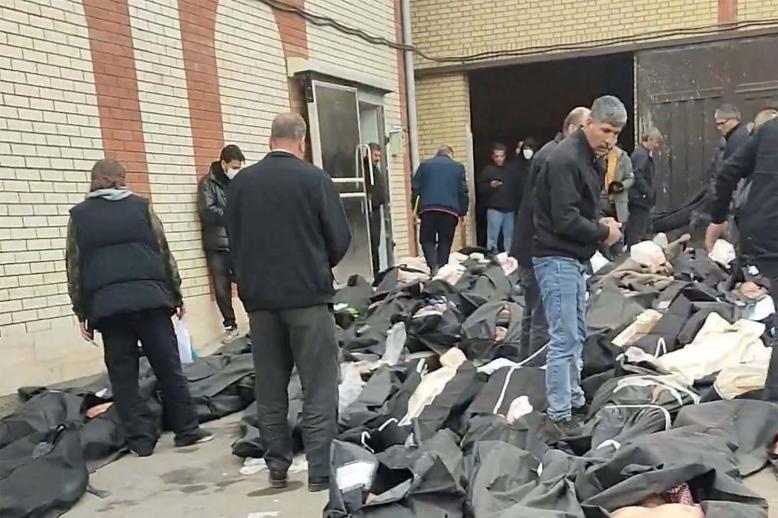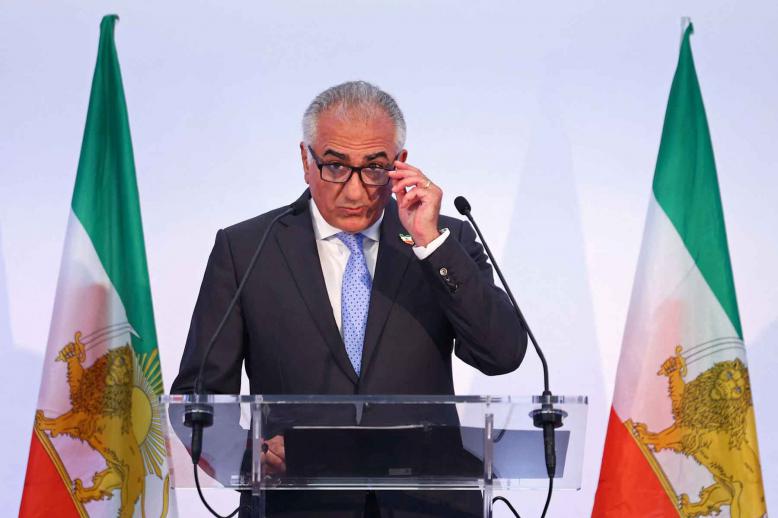Iran frees German, eyes more prisoner swaps with West
TEHRAN - Iran said Tuesday that a German held in Iran has been released as part of a prisoner swap for an Iranian held in Germany on suspicion of violating US sanctions.
"We announced that we are ready to (release) this German national... on condition that they (the Germans) do not extradite our citizen to America," judiciary spokesman Gholamhossein Esmaili said.
"On Sunday... the Iranian national left Germany and entered Iran, and on Monday... we released the German national," he told a televised news conference.
According to the official, the unidentified German had been detained "for some time" for "taking photos and videos" in areas without authorisation and had been serving a three-year prison sentence.
The German was swapped for Iranian Ahmad Khalili, who according to Iran's foreign ministry was detained in Germany "on the pretext of violating the illegal and cruel sanctions of the United States".
Khalili was freed on Sunday night after "intensive diplomatic consultations" and cooperation involving the judiciary and the Revolutionary Guards' intelligence service, ministry spokesman Abbas Mousavi said in a statement.
He returned to Iran together with Foreign Minister Mohammad Javad Zarif, who last week attended a security conference in the German city of Munich, Mousavi added.
Iran said in December it was ready for more prisoner swaps with the US after it secured the return of scientist Massoud Soleimani in exchange for Xiyue Wang, a Chinese-born American held in the Islamic Republic on widely criticised espionage charges.
Decades-old tensions between Tehran and Washington have escalated steeply since 2018, when US President Donald Trump unilaterally withdrew from a landmark 2015 nuclear deal and reimposed sanctions on Iran.
Soleimani, a stem cell researcher at a Tehran university, on December 7, also flew back home from the United States with Zarif.
Tensions between the West and Iran have risen over the US withdrawal from the nuclear deal and EU states' difficulty in keeping the deal alive despite the restoration of US sanctions on Iran.
Environmentalist 'spies' sentenced
In addition to upping its nuclear activity as a response to the deal's demise, Iran has been accused of escalating its strategy of taking foreign nationals as prisoners to be used as leverage in its dealings with Western states.
Among the prisoners held in Iran are Australian academic Kylie Moore-Gilbert, French researchers Fariba Adelkhah and Roland Marchal, and British-Iranian woman Nazanin Zaghari-Ratcliffe.
The prisoner swap with Germany came on the same day that an Iranian appeals court upheld jail sentences of up to 10 years against eight environmentalists convicted of spying, conspiring with Washington and damaging national security.
"The appeals court endorsed and finalised the sentences of the suspects in the so-called environmentalists' case, as we believe it to be a case of acting against national security," judiciary spokesman Esmaili said.
The eight were handed sentences of four to 10 years, with Morad Tahbaz and Niloufar Bayani receiving the maximum for "conspiring with America as a hostile government", Esmaili said.
Tahbaz is an Iranian who also holds US and British citizenship. Tehran does not recognise multiple nationalities, meaning Iranians it detains cannot receive consular assistance from other countries they may be citizens of.
Among the other suspects were Houman Jowkar and Taher Ghadirian, who were sentenced to eight years, and Sam Rajabi and Sepideh Kashani sentenced to six on similar charges.
Amir Hossein Khaleqi was charged with "spying" and sentenced to six years, while Abdolreza Kouhpayeh was sentenced to four years for "colluding to commit acts against national security", Esmaili said.
The convicts all worked with environmental group Persian Wildlife Heritage Foundation to track endangered species and were arrested on suspicion of espionage in early 2018.
Four of them were later charged with "corruption on earth" - an offence that is one of the most serious under Iranian law and carries the death penalty. Those charges were dropped last October, but the defendants still faced other security-related charges.
Another environmentalist detained in early 2018, Iranian-Canadian university professor Kavous Seyed Emami, 63, allegedly committed suicide in prison a fortnight after his arrest. His widow, Maryam Mombeini, left Iran for Canada in October after a months-long travel ban was lifted.






